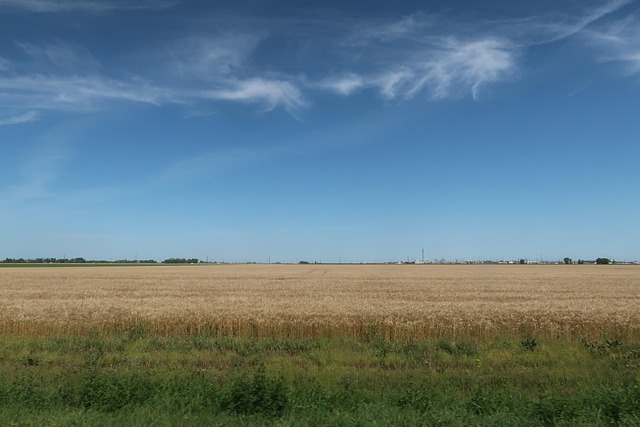In North Dakota, the Telecommunications Consumer Protection Act (TCPA) strictly regulates business phone communications using automated dialing systems and prerecorded messages, demanding prior express consent from consumers. Non-compliance can lead to substantial monetary damages. Recent years have seen a surge in TCPA litigation related to autodialers, with ND residents facing unwanted phone calls leading to numerous lawsuits. This trend highlights the importance of understanding TCPA rights and adhering to strict guidelines for businesses and autodialer law firms to protect privacy and avoid legal repercussions. Specialized law firms must implement robust consent mechanisms, document opt-out requests, and stay current on regulatory changes to navigate this intricate legal landscape effectively.
“In the digital age, understanding the nuances of telecommunications laws is paramount, especially in North Dakota (ND). This article provides an in-depth look at current litigation trends related to TCPA (Telemarketing Consumer Protection Act) violations, focusing on their impact on ND residents. With a rise in autodialer-related cases, we explore what this means for consumers and how law firms can navigate this evolving legal landscape. By analyzing key trends, we offer valuable insights for both residents and autodialer law firms seeking to protect their rights under ND law.”
Understanding TCPA Violations in North Dakota: A Legal Perspective
In North Dakota, understanding and adhering to TCPA (Telecommunication Consumer Protection Act) violations is paramount for businesses and autodialer law firms operating within the state. The TCPA sets strict guidelines on how businesses can contact consumers via telephone, including restrictions on using automated dialing systems or prerecorded messages without prior express consent. Non-compliance can lead to significant legal repercussions, such as substantial monetary damages per violation, making it crucial for entities to grasp these regulations.
North Dakota’s perspective on TCPA violations emphasizes consumer privacy and the need to obtain explicit permission before placing marketing calls using automated means. Autodialer law firms must ensure they have adequate consent mechanisms in place and meticulously document consumer opt-out requests. This stringent approach reflects a growing trend across the nation, with state and federal regulators actively pursuing TCPA violations to protect consumers from invasive and unauthorized communication practices.
The Rise of Autodialer-Related Cases: What Does It Mean for Residents?
In recent years, there has been a significant rise in litigation related to TCPA (Telemarketing Consumer Protection Act) violations in North Dakota, with a particular focus on cases involving autodialers. This trend reflects the increasing use of automated dialing systems by businesses and telemarketers, often without proper consent from recipients. As a result, many North Dakota residents have been affected by unwanted phone calls, leading to numerous lawsuits.
The impact of this rise in autodialer-related cases is twofold for ND residents. Firstly, it highlights the importance of understanding their rights under the TCPA and the need for businesses to adhere to strict guidelines when using automated dialing technologies. Secondly, it means that those who have experienced such violations can now seek legal action through North Dakota’s robust legal system, with many law firms specializing in TCPA cases, providing residents with a powerful tool to protect their privacy and silence unwanted telemarketing calls.
Key Litigation Trends and Their Impact on ND Lawsuits
In recent years, the legal landscape in North Dakota regarding TCPA (Telecommunication Consumer Protection Act) violations has seen several notable trends emerge. One key trend is the increasing number of lawsuits filed against businesses and autodialer law firms for unauthorized automated calls, also known as robocalls. These suits are driven by consumers seeking redress for invasions of their privacy. Another significant trend is the consolidation of TCPA cases in North Dakota courts, indicating a growing focus on this area of law within the state.
The impact of these trends is profound. They have led to more stringent interpretations of TCPA regulations and increased liability for violators. As a result, businesses and marketing agencies are now more vigilant about obtaining proper consent before making automated calls, often employing advanced technologies to ensure compliance. This shift has also prompted autodialer law firms to adopt more ethical practices, recognizing the potential consequences of non-compliance in North Dakota courts.
Navigating the Legal Landscape: Strategies for Law Firms Handling TCPA Cases
Navigating the complex legal landscape surrounding TCPA (Telemarketing Consumer Protection Act) violations requires strategic expertise, especially for law firms handling cases in North Dakota. With a growing number of residents affected by autodialer-related issues, legal professionals must stay abreast of the evolving regulatory environment and case precedents. The key lies in understanding that each client’s experience is unique, necessitating tailored strategies.
Autodialer law firms in North Dakota should focus on discerning legitimate marketing calls from unlawful automated communications. This involves scrutinizing call records, identifying patterns indicative of TCPA violations, and educating clients about their rights under the Act. Effective case management includes timely filing of lawsuits, ensuring compliance with statutes of limitations, and gathering comprehensive evidence to support claims. Additionally, law firms should stay informed about industry-specific interpretations of TCPA regulations to provide robust legal representation in these complex matters.






